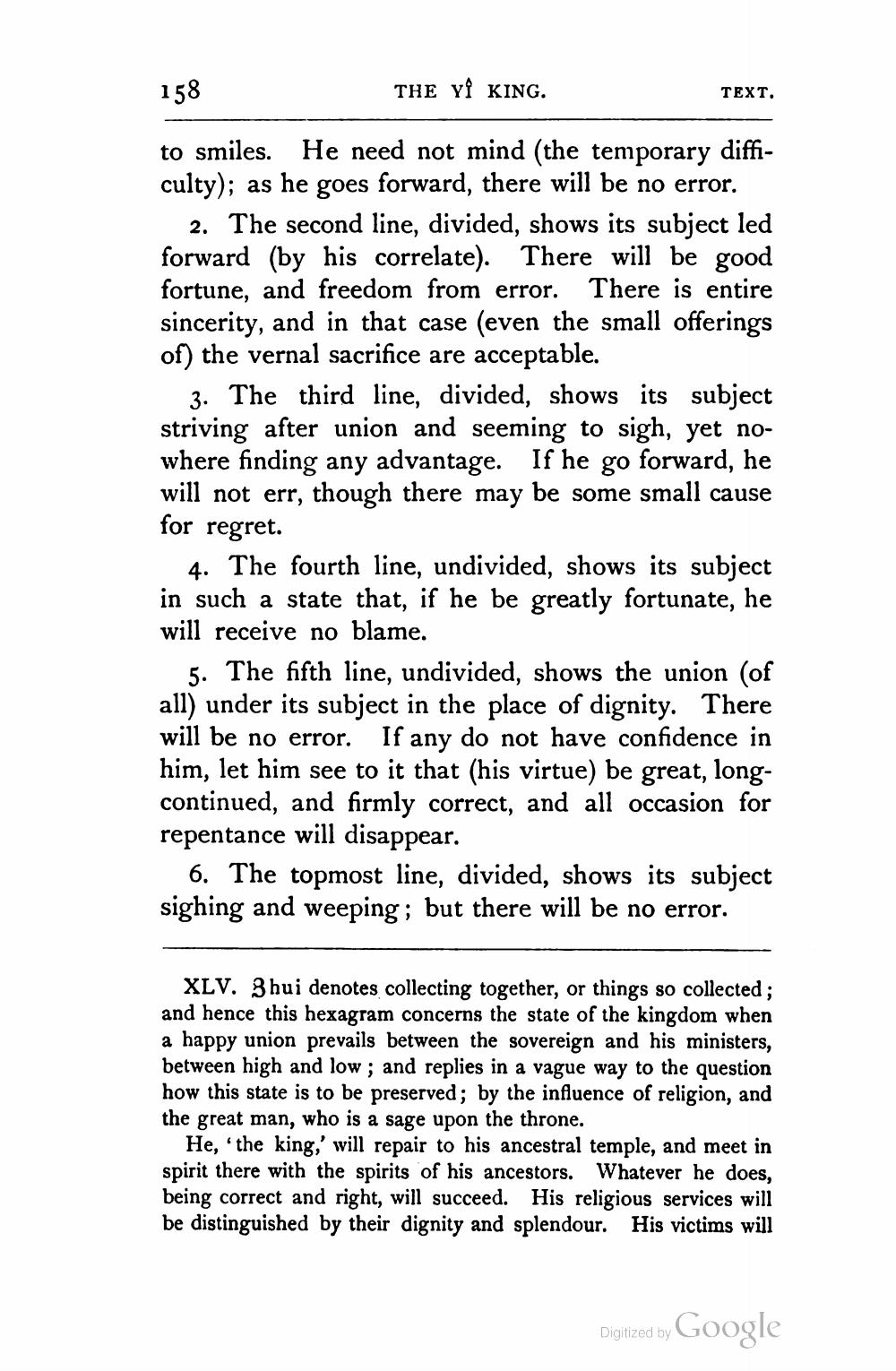________________
158
to smiles. He need not mind (the temporary difficulty); as he goes forward, there will be no error.
THE YI KING.
TEXT.
2. The second line, divided, shows its subject led forward (by his correlate). There will be good fortune, and freedom from error. There is entire sincerity, and in that case (even the small offerings of) the vernal sacrifice are acceptable.
3. The third line, divided, shows its subject striving after union and seeming to sigh, yet nowhere finding any advantage. If he go forward, he will not err, though there may be some small cause for regret.
4. The fourth line, undivided, shows its subject in such a state that, if he be greatly fortunate, he will receive no blame.
5. The fifth line, undivided, shows the union (of all) under its subject in the place of dignity. There will be no error. If any do not have confidence in him, let him see to it that (his virtue) be great, longcontinued, and firmly correct, and all occasion for repentance will disappear.
6. The topmost line, divided, shows its subject sighing and weeping; but there will be no error.
XLV. 3 hui denotes collecting together, or things so collected; and hence this hexagram concerns the state of the kingdom when a happy union prevails between the sovereign and his ministers, between high and low; and replies in a vague way to the question how this state is to be preserved; by the influence of religion, and the great man, who is a sage upon the throne.
He, the king,' will repair to his ancestral temple, and meet in spirit there with the spirits of his ancestors. Whatever he does, being correct and right, will succeed. His religious services will be distinguished by their dignity and splendour. His victims will
Digitized by
Google




